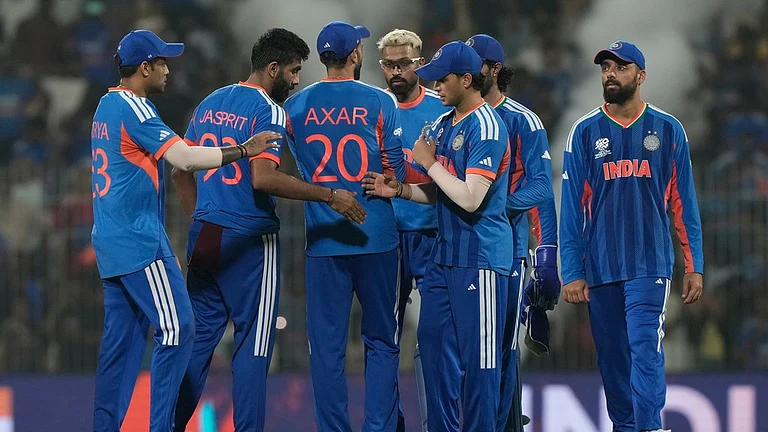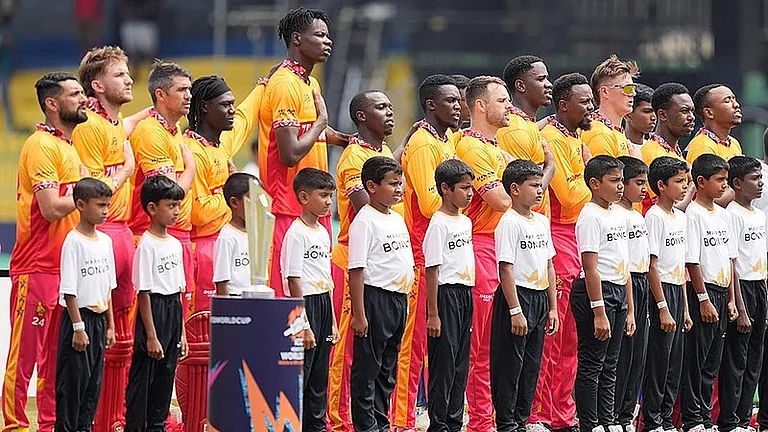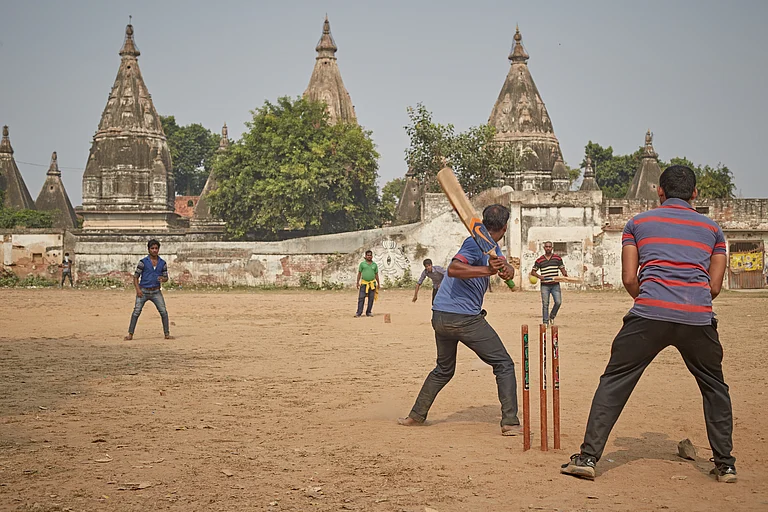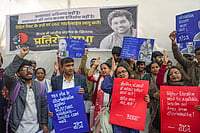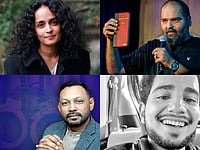On June 4, at a ground in Gurgaon, cricket players from Delhi and Odisha were toiling in the heat. Each team was eyeing for a win. It was an important match. But the usual buzz of a cricket tournament was missing. There were no cheerleaders, no spectators and no media.
The occasion was the Summer Cup bilateral series for the visually impaired. It is a major event, providing a platform for visually impaired athletes to showcase their talent and participate in a competitive environment.
The team coach, Rajeev Bansal, was constantly moving in and out of the field giving instructions to the visually-impaired players. Beyond the boundary, he shared something important. “Every time a match happens, we have to pay money from our pockets and hire a ground. For this match, we have paid around Rs 30,000,” he says.
These are some of the issues that are plaguing disability cricket in India—classified under four categories—blind, physically challenged, wheelchair and deaf. It comes under the umbrella of the Differently Abled Cricket Council of India (DCCI). Players often complain of the lack of funds and proper infrastructure as well as low media visibility. Despite this, teams in all categories have managed to win many tournaments and numerous awards and accolades. The Blind cricket team, for instance, has won three T20 World Cups—in 2012, 2017 and 2022—and two ODI World Cups—in 2014 and 2018.
But what really stands out are the individual success stories of each of these players across categories. They have had their share of struggles, heartbreaks and disappointments, but they rose above the challenges and have managed to make a mark for themselves. Their stories are motivating other players to pick up the bat and ball.
After the Delhi-Odisha match got over, four players—Nilesh Yadav, Lingaraja Rautara, Mukesh Kumar Rawat and Mohammad Jaffar Iqbal—shared their journeys. The other interviews were conducted over the phone. Here are some of the stories.

Nilesh Yadav
Yadav has been playing cricket for the Delhi State team for the past eight years. He hails from Jaunpur, Uttar Pradesh. He was born partially blind and his journey from partial to total blindness is filled with unimaginable challenges. Despite this, he has represented India on national and international platforms. His talent and commitment earned him a spot in international cricket. He got selected for the fourth T-20 World Cup squad team under B1 (totally blind) category. “We only need better support in terms of infrastructure. We have already proved that we are good, skillful players,” he says.

Lingaraja Rautara
He is currently leading the Odisha team. In 2010, he suffered an eye injury while playing cricket when a ball hit his eye. This led to vision loss. Since then, he has been playing in the B2 (partial vision) category. After the accident, he was shattered and for five years, he didn't leave his home. In 2015, he got to know about all-rounder Mohammad Zaffar Iqbal, who has been playing for more than two decades in the total blind category. His journey inspired him and he was motivated to pick up the bat again. He represented India on the national platforms. “The feeling of representing India is nothing short of a dream and has been the best moment of my cricketing journey,” he says.

Mukesh Kumar Rawat
Rawat has been associated with the Delhi squad for the last five years. He’s a B1 (totally bind) category player and has participated in the Nagesh Trophy before and contributed both as a bowler and a batsman. He also got a chance to represent India and was a part of the Indian squad in the India-Bangladesh Bilateral T20 cricket series for the Blind in 2025. His consistency has really helped his team. “Blind cricketers are no less than other cricketers and we want the citizens, the media and the government to treat us as equals,” he says.

Mohammad Jaffar Iqbal
An all-rounder, Iqbal plays in the B1 (totally Blind) category. He is also the president of the cricket association for the visually impaired, Odisha. He has been playing cricket for the past 22 years. In 2010, he was selected to lead Team Odisha. In 2011, he debuted for the Indian National blind cricket team. In 2012, he participated in the T20 World Cup. He also contributed to India’s victory in the Asia Cup for the blind and defeated Pakistan in the finals. He’s also a part of the Indian team that won the fifth ODI World Cup in 2018. “My only wish is to motivate more and more cricketers. More grounds and better infrastructure will really help these players,” he says.
Amir Hussain Lone
Lone hails from Waghama village in Anantnag district, Jammu and Kashmir. As a child, he saw Sachin Tendulkar on television and since then he wanted to be like him. However, when he was eight years old, his life changed completely when he lost both his arms in an accident at his family’s sawmill. He was too young to make sense of the tragedy but his grandmother encouraged him to pursue cricket. He picked up different techniques—gripping the bat between his neck and shoulder and bowling using his feet—and perfected his skills. His determination helped him make it to the para cricket team. He played his first national match in Delhi and the first international match against Bangladesh in 2018. His performance led him to become the captain of the state team in 2015. He represented India in Nepal, Sharjah and Dubai. His journey from a small village in Kashmir to becoming an international cricketer has inspired many. For him, his biggest moment arrived when he finally met Tendulkar. “Meeting him was the most cherished and memorable moment of my life. I couldn’t sleep the night before,” says Lone.

Brijesh Dwivedi
Since childhood, Dwivedi faced trouble walking because of polio. His mother stood by him like a rock and with her support and his determination, he learned to walk. He was crazy about cricket but he knew because of his condition he won’t be able to play normal cricket. His friends and family encouraged him to pursue his passion. In 1999, he got a chance to represent Madhya Pradesh disabled cricket team and that’s how his professional journey began. He represented the Central Railways from 2003 to 2007. His performance in the national level Divyang Cricket competition in 2017 gave him an opportunity to represent the country in the India-Bangladesh Friendship Cup organised by the Disabled Cricket Control Board of India. Since then, he has represented the Indian Divyang Cricket team. He also led his team in Divyang (Divyang‑Premier) League in Sharjah, UAE in 2021. He’s been playing cricket for 23 years now.
Brajesh Jatav
Jatav is a district-level player from Madhya Pradesh. He lost both his arms and eyesight in one eye in a firecracker accident in 2005. He started learning to write with the help of his feet. He completed his education and also cleared the Madhya Pradesh Public Service Commission (MPPSC) exams thrice. But this is not his only achievement. He is a cricket enthusiast and while pursuing his education, he also started playing cricket. He has been playing at the district level. “I play cricket to show the world that that disability shouldn’t stop anyone from pursuing their dreams,” he says.

Dharmendrasinh Zala
He is a one-legged batsman who plays for India. He is an all-rounder—great with batting as well as bowling. He is a part of the Indian Divyang (Differently-Abled) cricket team, including the T20 and Test teams. He has been representing Gwalior for the past eight years and has won numerous awards and accolades.
Shailendra Yadav
Yadav is a wheelchair cricket player who has been representing Bhopal, Madhya Pradesh for the last 10 years. He was born with polio and initially believed his disability was a hindrance to his dream of being a cricket player. However, he had been looking for opportunities and one day, thanks to his friends, he got introduced to wheelchair cricket. He considers that day to be a major turning point of his life. Today, he is the captain of Madhya Pradesh wheelchair cricket team and has been leading the team for the past 10 years. His efforts and dedication as a captain and an all-rounder gave him an opportunity to represent India in international tournaments as well. In 2023, he was selected for the Asia Cup Wheelchair Cricket T20 tournament, which was held in Kathmandu, Nepal.

This article appears in Outlook Magazine’s June 21, 2025 issue, Innings/Outings, which captures a turning point in Indian cricket —from retiring legends to small-town stars reshaping the game’s power map. It appeared in print as Unbroken, Unfazed.










